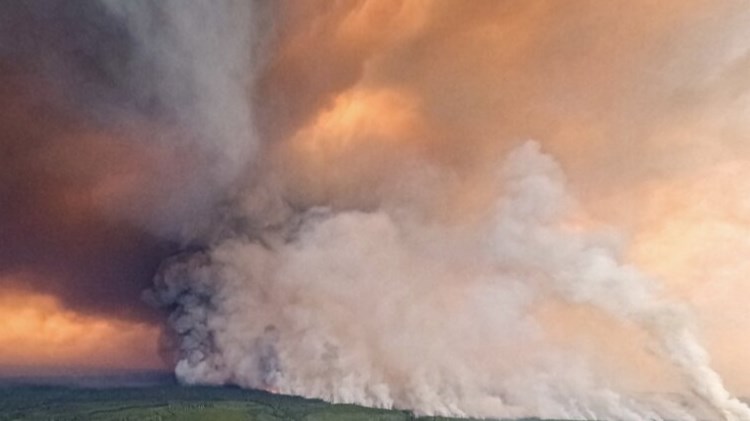Exports fell for a second month in a row, widening Canada’s trade deficit with other countries, according to a Conference Board of Canada brief.
The brief cites everything from wildfires to monetary policy and geopolitical events like the war in Ukraine for declining trade flows.
While Canada’s merchandise imports decreased by 0.5 per cent in June, exports fell by 2.2 per cent, the brief notes.
“Canada’s merchandise trade deficit widened from $2.7 billion in May to $3.7 billion in June.”
Exports of metals and minerals decreased decreased by 8 per cent, “mainly due to a drop in exports of unwrought gold, silver, and platinum metals.”
Agricultural and seafood exports were down 4.4 per cent, mainly dragged down by a 42.4 per cent drop in canola exports and a 15 per cent decline in “intermediate food products.”
On the import side, energy imports were down 13 per cent, primarily driven by a drop in refined petroleum products.
Imports from the U.S. declined 0.7 per cent, while exports fell by 1.2 per cent.
“As a result, the merchandise trade surplus with the United States narrowed from $7.7 billion in May to $7.4 billion in June.”
Forest fires in Canada are having an impact on Canadian exports, the Conference Board warns:
“The worst wildfire season on record could stunt net export growth in the short run. Wildfires occur each year, but the scale and intensity of the wildfires this year resulted in the worst-ever wildfire season.
“In reaction to the spreading wildfires, several Canadian oil and gas producers suspended operations, causing a significant decrease in oil production—amounting to 120,000 barrels per day. At the same time, the forestry sector shut down sawmills, resulting in delays in producing forest products.
“Considering that Canada is a significant exporter of mineral fuels and forestry products, the wildfires have the potential to impede export growth in the months to come.”
One other kind of fire – inflation – is being tamed by monetary policies, and that is creating an economic drag that is resulting in lower demand for Canadian goods.
“The global economy is losing its momentum,” the Conference Board brief notes.
“Major central banks around the world have implemented forms of tightening monetary policies aimed at controlling inflation. Higher borrowing costs have slowly worked their way throughout the global economy, which has softened global demand.”
“Geopolitical tensions will continue to shape the global economic landscape,” the Conference Board adds.
“The global economy, particularly global trade, faces additional uncertainty due to rising tensions between the U.S. and China, coupled with Russia’s ongoing invasion of Ukraine.
“Moreover, the BRICS nations are actively seeking to reduce reliance on the U.S. dollar and promote their economic interests by proposing the creation of a new gold-backed currency. Such a move could exacerbate geopolitical divisions.
“Additionally, if there is a shift away from the U.S. dollar as the world’s reserve currency, it could lead to the devaluation of the Loonie and disrupt the landscape of international trade.”



